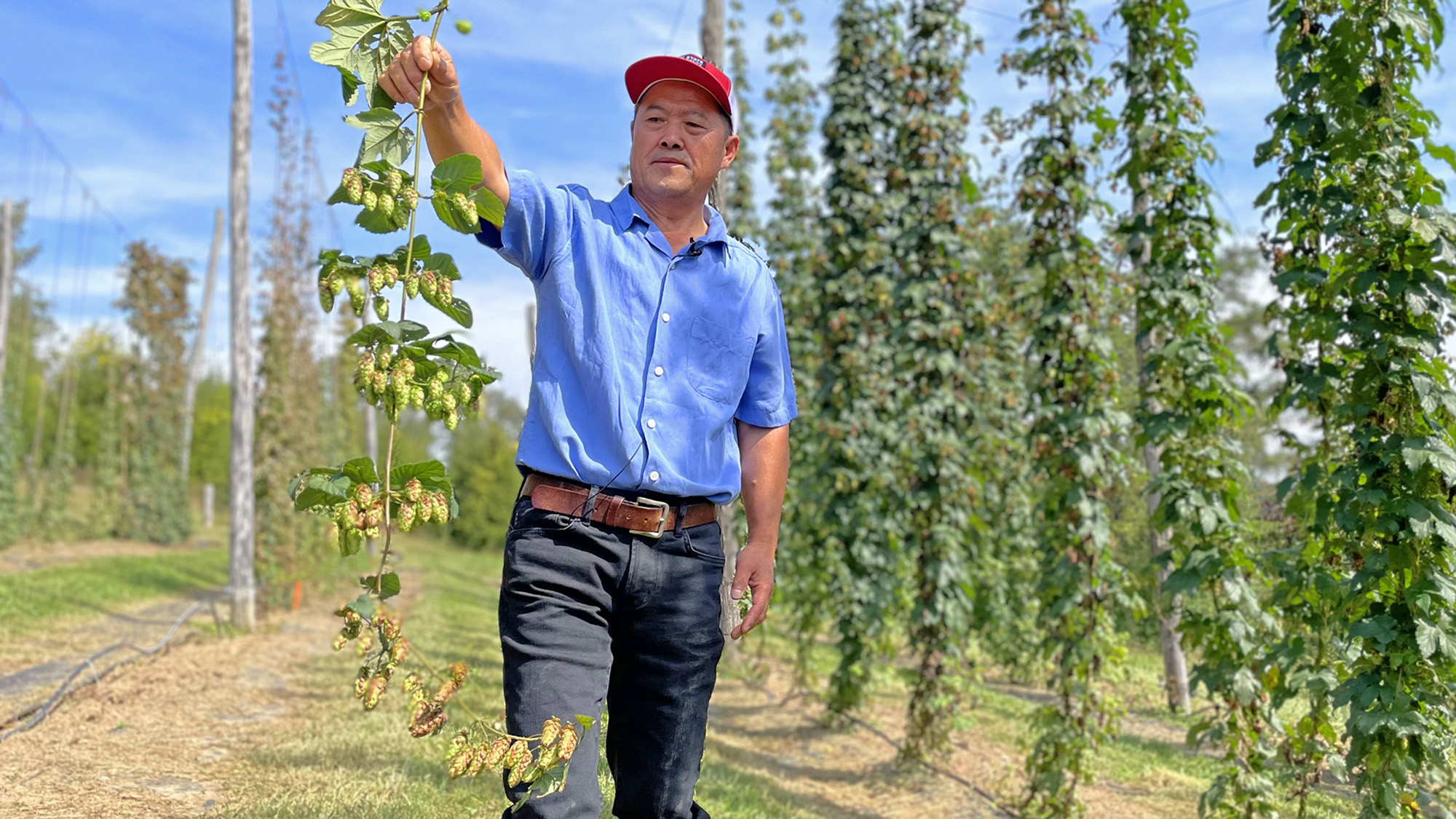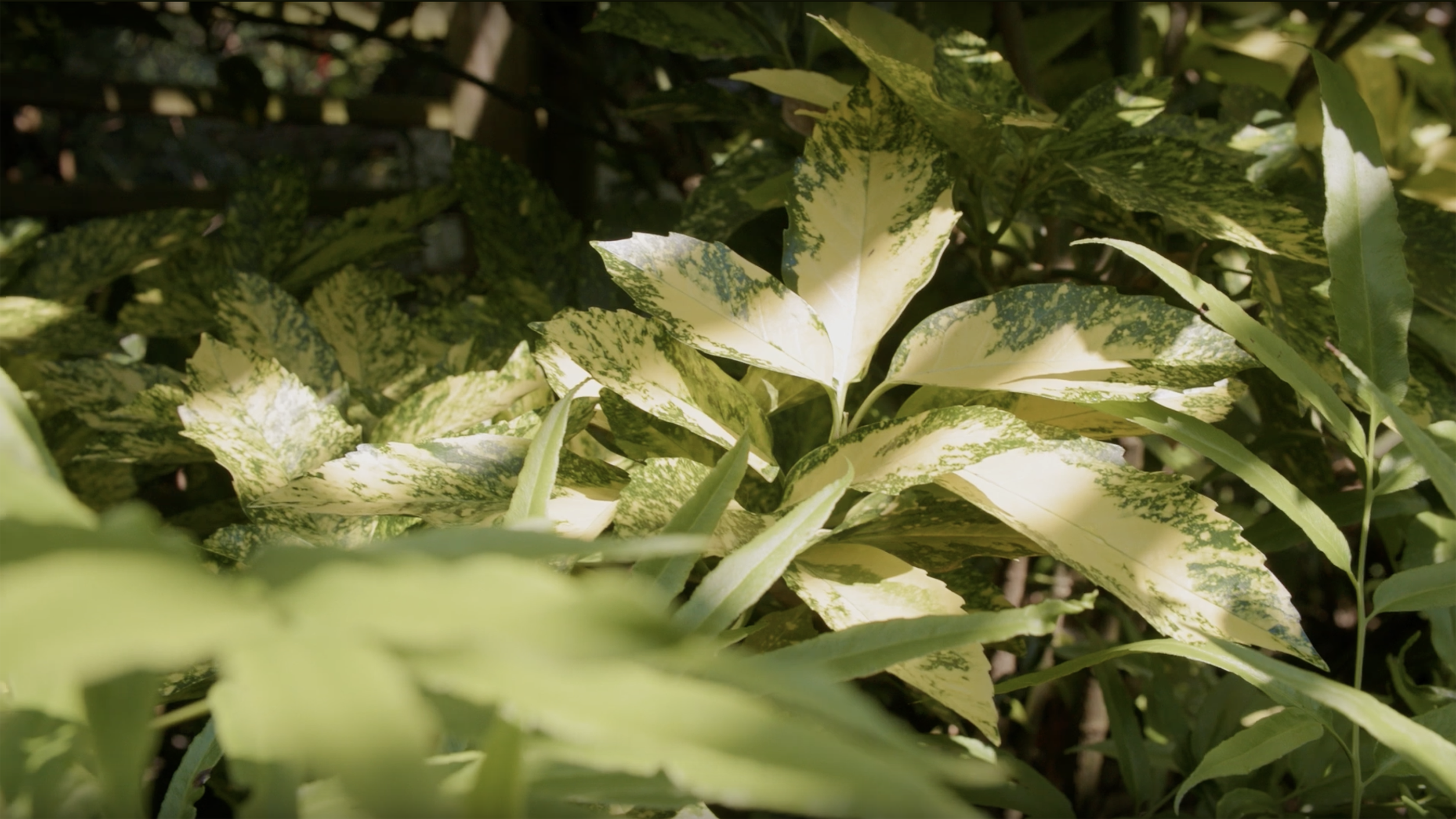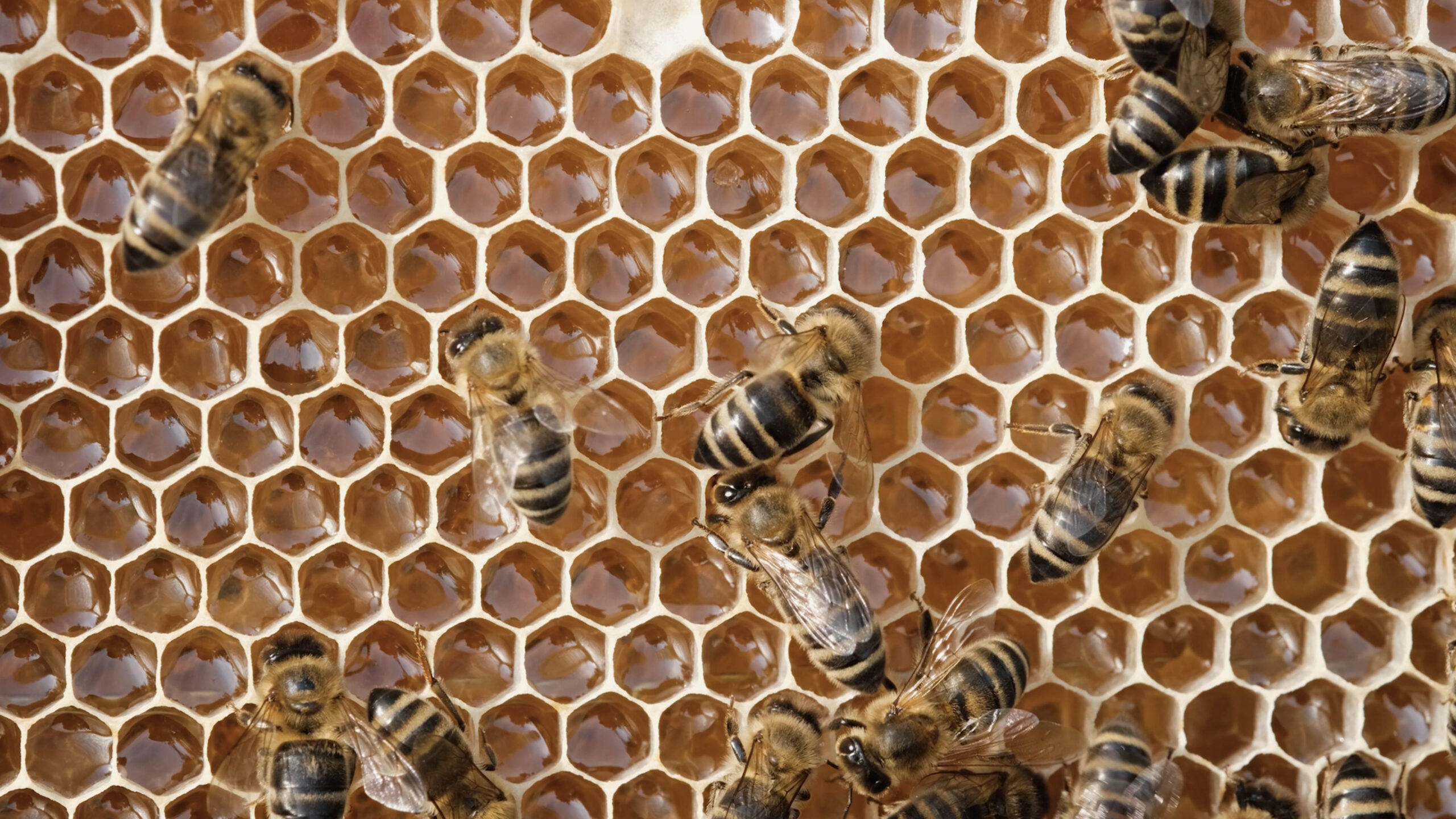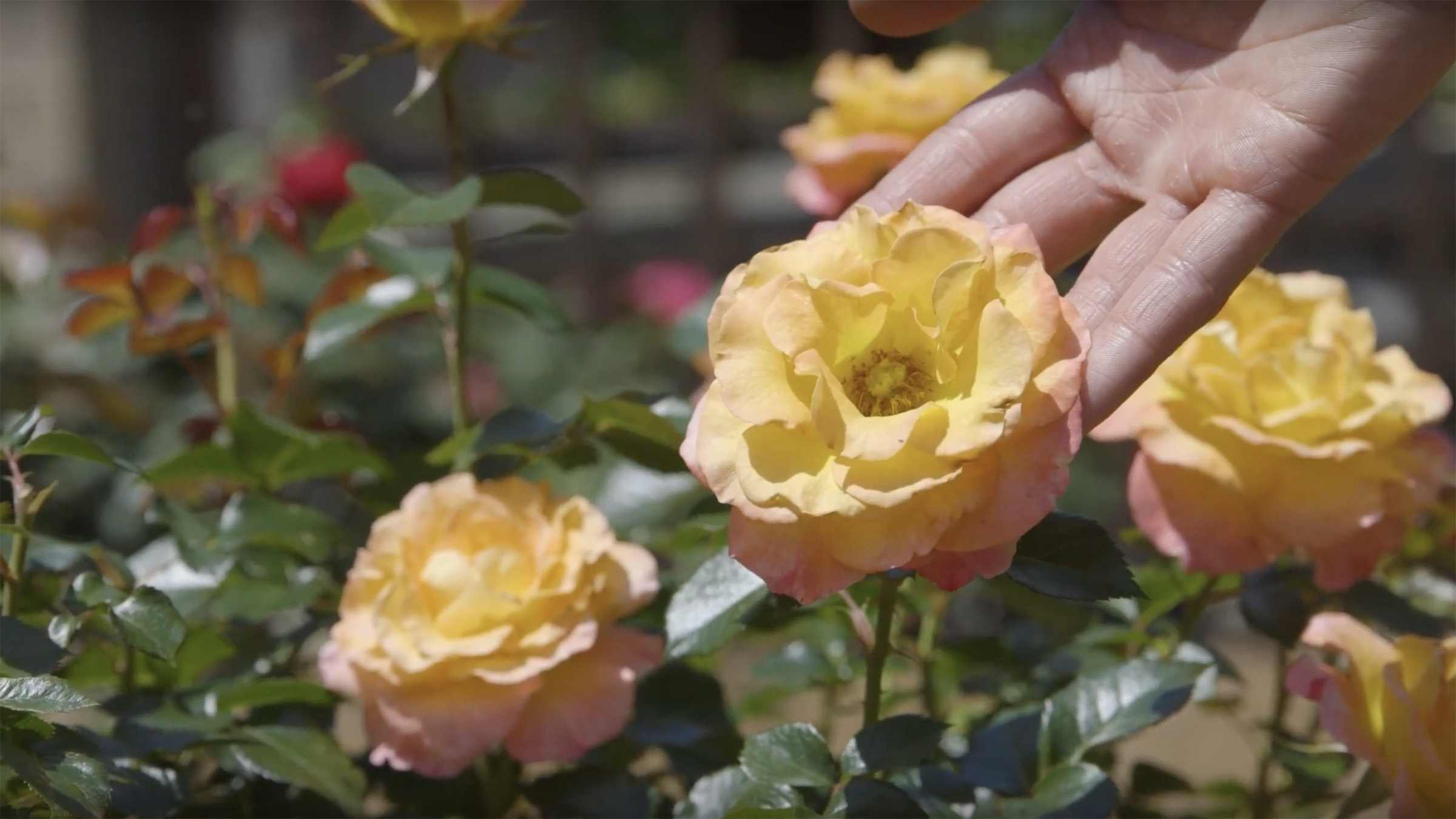Beer is big business these days. Ignited by an increase in interest for local foods and evolving consumer tastes, a craft brewing boom has exploded in cities and towns across the country.
The number of U.S. breweries has increased by nearly five-fold since 2010; not too shabby for a centuries-old industry.
North Carolina is home to more than 350 craft breweries, which ranks No. 9 in the nation.
As with all things agriculture, North Carolina is playing a large and important role as local demand from brewers, farmers and consumers continues to grow. As of 2020, more than 350 craft breweries had set up shop in the Old North State, generating nearly $2 billion in economic impact annually.
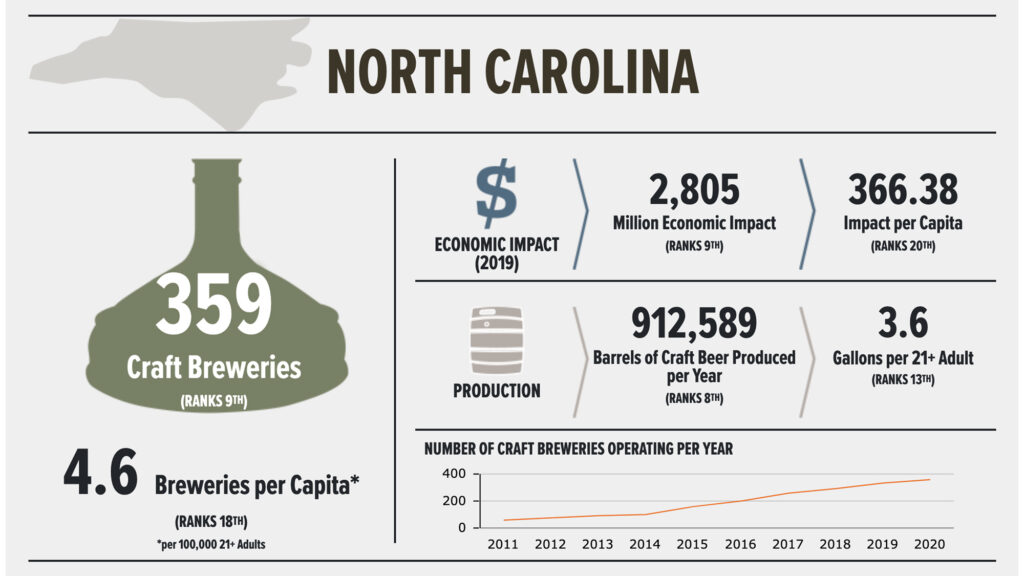
At the heart of the big beer bang are prized, pine cone-like plant parts called hops. Despite making significant strides, the craft beer industry’s growth in North Carolina has been stymied by a reliance on West Coast hops, which don’t perform as well in the South’s subtropical climate.
Enter NC State University, whose Extension and research specialists are working to breed new varieties of hops suited to North Carolina’s needs. We caught up with two NC State scientists helping to lead the North Carolina craft beer renaissance, Luping Qu, Ph.D., hops breeder, and Jeanine Davis, Ph.D., specialty crops specialist.
Grab a pint and pull up a stool as they share what’s on tap with North Carolina hops in this edition of Homegrown.
What Are Hops Anyway?
Hops come from the Humulus lupulus, a perennial plant that grows like a vine – referred to as a “bine” in the industry lingo. The female plants produce aromatic flowers known as hops, which look like little pine cones. But it’s what’s inside that counts.
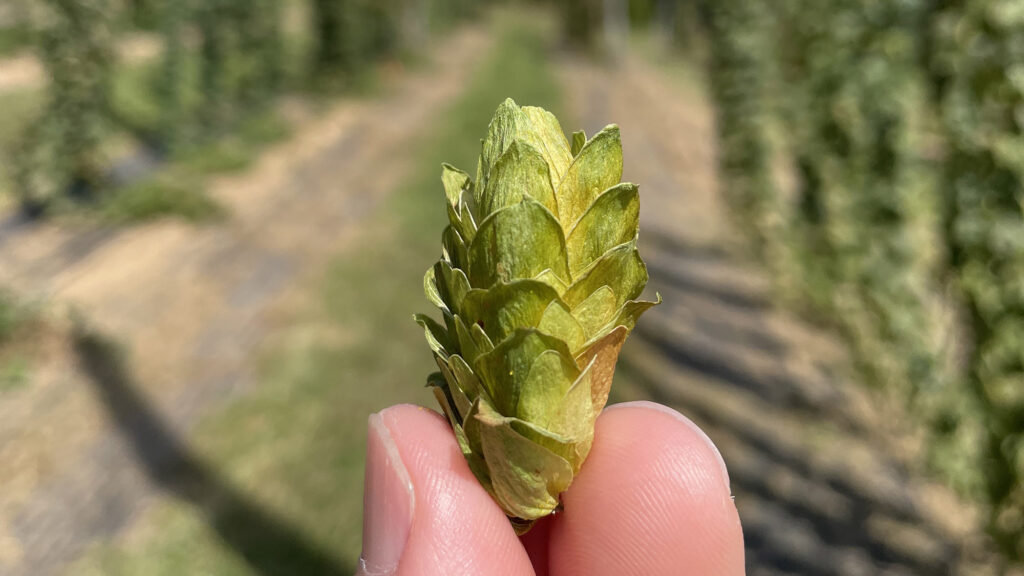
As the cones mature, the inside becomes full of sticky, fragrant lupulin glands. These tiny yellow pods are rich in resins, which contribute bitterness to beer and help balance the sweetness of malt, as well as essential oils, which generate distinct aromas and flavors. Any IPA fans out there?
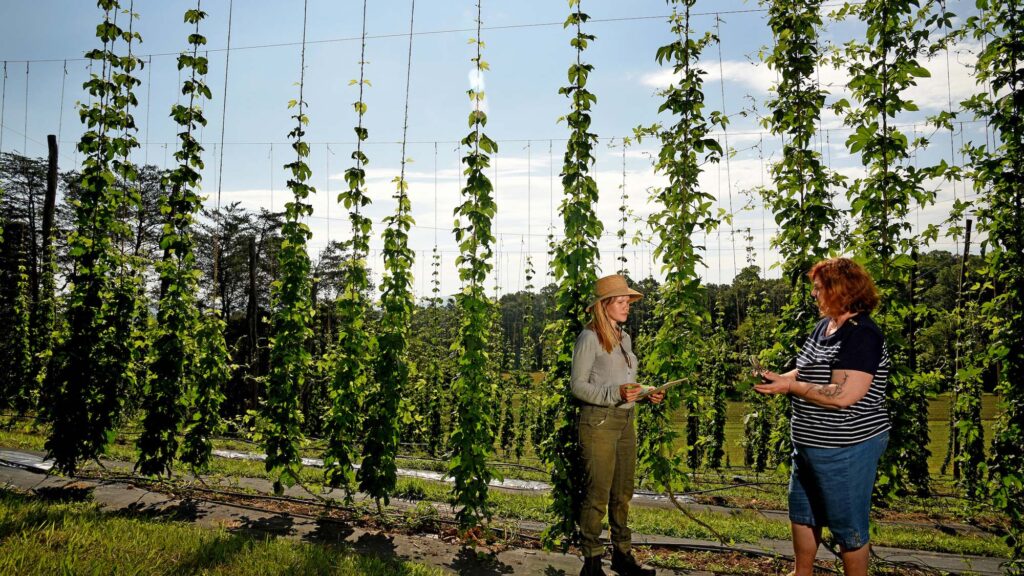
Ultimately, hops are the special ingredient that give just about every beer on the market today its own flavor and aroma. As Britt Cox, with Sierra Nevada’s Mills River Brewery, sums it up, “Without hops, beer would just be basically alcohol and sugar water.”
Breeding Better Hops
Traditionally, hops production in the U.S. has revolved around the Pacific Northwest. Hops are finicky flowers that prefer mild weather, rich soil and reliable precipitation (typically found in the Pacific Northwest).
As a result, most of the farming practices, business models and – perhaps most importantly – the available hops varieties, aren’t tailored to the unique economic and environmental conditions of Southern states. But where there’s a thirst, there’s a way.
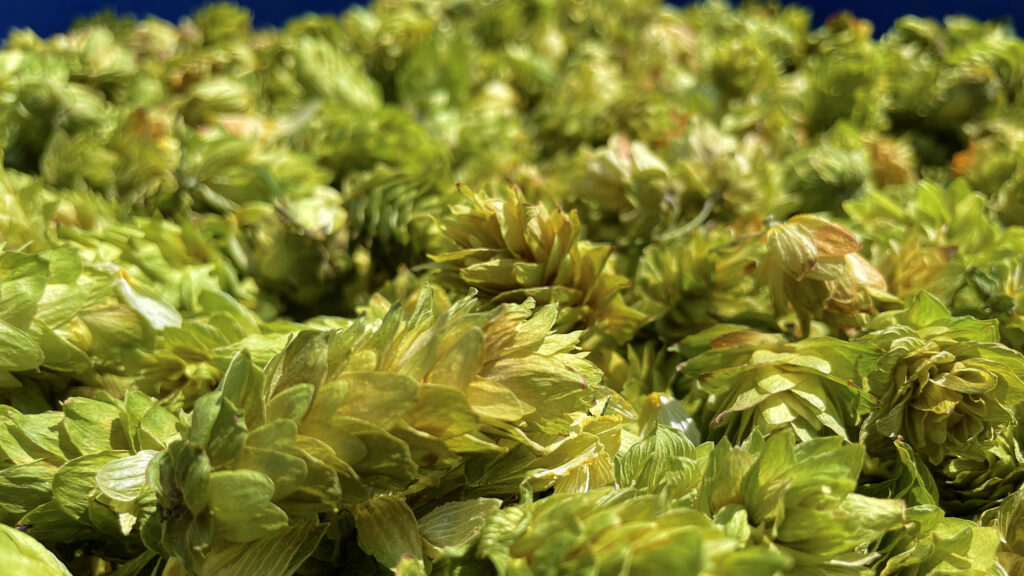
As consumer interests have evolved and the craft beer industry has expanded and picked up steam, NC State – working alongside industry partners, farmers and brewers alike – have been blazing a trail for North Carolina and other Southern states to grow healthy, happy hops (which in turn should grow healthy, happy craft brewing industries).
Launched in 2016, NC State’s hops breeding program involves multiple partnerships, a lot of trial and error, and a little luck. Among the priorities: to breed new hops varieties that naturally produce higher yields in the South. Luping Qu and the team are also selecting for resistance to the disease, downy mildew, and for unique flavors and aromas.
Launched in 2016, NC State Extension’s hops breeding program aims to grow new varieties that will increase brewers’ and farmers’ profits, and produce uniquely Southern beers for all to enjoy.
Already the team may have struck gold – or more of a golden blonde hue really – with a line of hops that’s been used to brew a blonde ale in partnership with Sierra Nevada. The NC State team believes it could be the start of something special.
To reach the state’s full potential, increase brewers’ and farmers’ profits, and produce uniquely Southern beers for all to enjoy, North Carolina needs its own hops. With some science and a little luck, this story may have a hoppy ending after all.
Special Thanks
A big special thanks to the N.C. Department of Agriculture and Consumer Sciences, whose Specialty Crops Block Grant Program and New and Emerging Crops Program provide valuable financial support and resources that make NC State’s hops breeding efforts possible.
This segment of Homegrown was filmed at the Mountain Horticultural Crops Research and Extension Center in Mills River, N.C.
- Categories:
